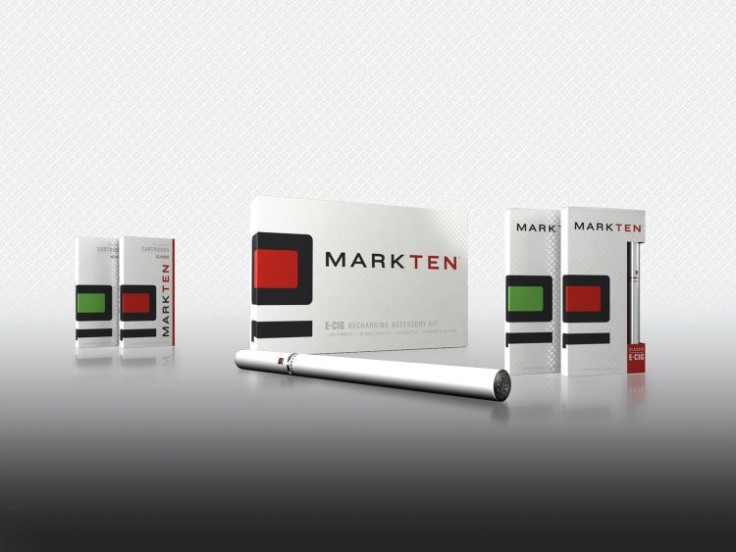E-Cigarettes Embraced By Marlboro Maker Altria As They Announce the MarkTen

E-cigarette companies have been bought by major tobacco companies as more Americans move away from smoking cigarettes. Now, Altria Group Inc., the maker of Marlboro cigarettes, is making a big move into the market.
The tobacco company announced plans for the release of the MarkTen e-cigarettes in August at an investor meeting today, with the company's Nu Mark division introducing the e-cigarettes first in Indiana. People will have the option of disposable or rechargeable e-cigarettes, as well as classic or menthol flavors in a way that "closely resembles the draw of a cigarette," as described by cigarette company executives.
Altria is the last major tobacco company to jump into the e-cigarette market. Reynolds American, the second-largest tobacco company and the maker of Camel, Pall Mall, Kool, and other cigarettes, is also the maker of Vuse e-cigarettes, although they weren't well received, according to Forbes. Meanwhile, Lorillard Tobacco Company, the maker of Newport, Maverick, Old Gold, and more, acquired the popular e-cigarette company Blu eCigs for $135 million in April 2012. Blu makes up almost one-third of the e-cigarettes sold in convenience stores.
Per capita cigarette consumption was at its highest in 1975 with about 145 packs. By 2011 it had gone down to 48.5 packs as a result of more public awareness of their detrimental health effects.
"This industry is in decline, whether people want to admit it or not," Jack Russo, an analyst with investing company Edward Jones and a tobacco industry expert, told CBS. Electronic cigarettes offer tobacco companies a rare opportunity to introduce new products, he added, and "maybe look like the good guys."
E-cigarettes are battery powered devices that heat nicotine in disposable cartridges in order to produce a vapor that the smoker can inhale. The manufacturers claim that this vapor, when exhaled, is harmless to people around the smoker. They usually come in different flavors as well as various nicotine levels. They are meant to provide the smoker with a healthier vehicle to get their nicotine fix, because they don't contain the other harmful chemicals that cigarettes have.
However, The FDA is concerned that they might be a gateway to real cigarette smoking, especially for younger people. So far three U.S. states have banned the use of e-cigarettes in enclosed public spaces.
In May, the California Senate voted 21-10 to pass a bill banning them from inside public buildings, near playgrounds, inside restaurants, and on airplanes. The bill, known as Senate Bill 648, would also restrict the places where e-cigarette companies could advertise, according to The Sacramento Bee.
One of the lawmakers who voted against it, Sen. Joel Anderson, R-Alpine, believes that they are an effective way to quit regular cigarettes. He urged senators to consider that, especially when California spends "tens of millions, billions of dollars trying to get people off cigarettes."
According to Forbes, Wells Fargo Securities has reported many times that the e-cigarette market will overtake traditional cigarettes within a decade.
"It's far too early to be calling this the next horizon," Russo told CBS. "There's still a lot of question marks." He also said that the cigarette companies embrace of e-cigarettes could be seen as desperation, and added that "all the potential good news could be squashed down the road by taxation, regulation, you name it."



























